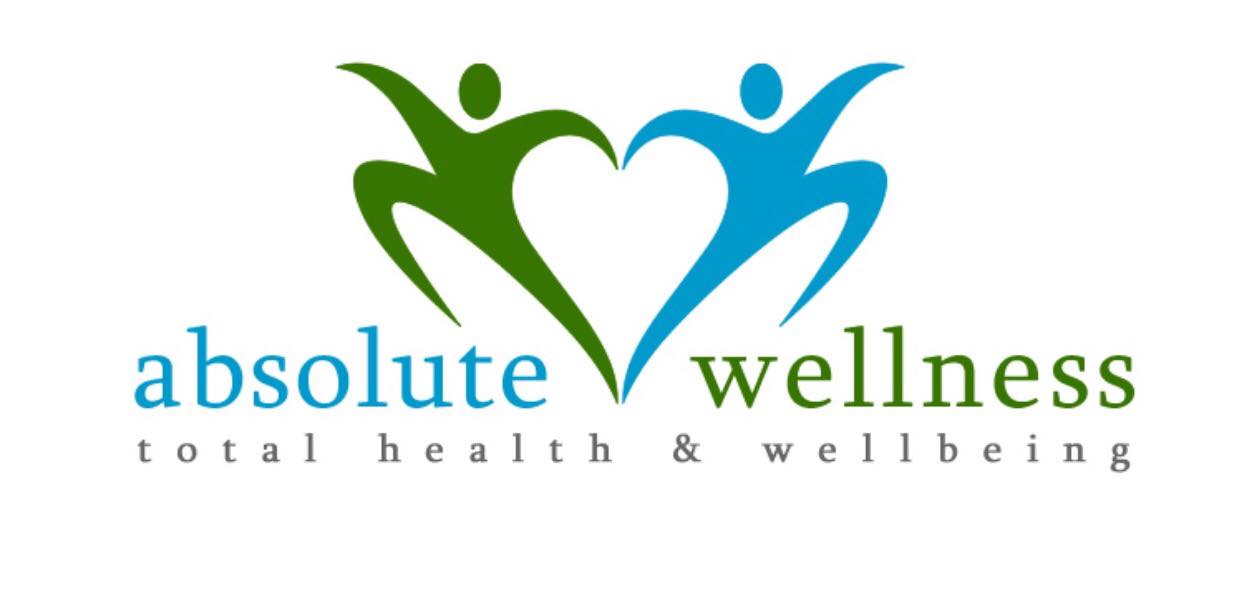By Julie Simpson
•
November 18, 2024
I really don’t know why I haven’t written a blog about menopause till now. I feel a little out my depth as I’m not a menopause expert but I have heard a lot of women’s experiences of menopause in my work. I’d say 80% of my clients are women aged 40-55 years and it’s probably the most discussed health topic during PT sessions and the Relaxations sessions I run. For many women, entering this phase of life can be so life-changing it can feel like grief or a loss of the person you once were. We are no longer that younger looking, fit and fun-loving person we once identified ourselves to be. We might not recognise ourselves anymore. I’ve heard women say they just couldn’t see the joy in life anymore or how long it had been since they’d really laughed. You can feel you are grieving your younger self, no longer having children, your skin is changing, your body shape and you may feel like your memory has totally gone. Working at the level you once worked at can be a real struggle and simply become too much; with many women leaving high powered careers due to severe brain fog and hot flushes. Personally, I think I was a little in denial that I would ever suffer symptoms. I always thought if I ate well, exercised, kept stress levels down and got enough sleep then I’d be fine. How wrong I’ve been, and in hindsight I believe I’ve been perimenopausal since my youngest was born 12 year ago and I started having terrible night sweats. I'm 50 now and think the pregnancy maybe triggered the change in hormones. For anyone that knew me before this, I was always freezing and in bed my feet were like blocks of ice. Now I could literally melt chocolate on my feet I‘m so warm, and my Raynaud’s symptoms are much less of a problem. Over those years I would go to the GP and have a blood test to check hormone levels, but it always came back as fine. Then 3 years ago, a GP did the blood test 2 months apart to check for a change in hormones, based on all my symptoms. It seems to me that women are in a GP lottery with hugely contrasting support from GPs. The range of treatment and advise, despite the explosion of media interest in the topic, isn’t filtering down to every GP. I know several women that have had to go private for blood tests to determine which hormones they are lacking. I know women that are suffering with symptoms that are restricting them from getting out the house and from living a life they once loved. I know men that don’t recognise their wives anymore and I’m sure children also feel they’ve lost their Mother for a while. Yet I keep hearing of GPs refusing to believe a woman is in perimenopause, and prescribing treatment for anxiety or depression. Its scandalous and unbelievable that women are being repeatedly told its something else and not being listened to, especially when they are over 40 years old. The thing is, no-one knows their body and will notice any changes more than you. Yet your GP isn’t listening. Sadly, this is why some women have given up on the GP service altogether, questioning their own mind about what’s wrong with them. Not being listened to and spending a lot of money going to private clinics and a monthly fortune on supplements. My newsfeed on social media is literally swamped with the latest fix for menopause. I’m fortunate that my GP has been excellent in providing HRT and listening to me, (once 2 blood tests showed a huge difference in FSH follicle stimulating hormone) but I just don’t hear this happening very often. Blood tests shouldn’t be the only determining factor of perimenopause. Nor should age as some women as young as 30 will go through early menopause. I know some of my clients have sailed through these years, so please don’t believe all women are doomed in these years. But if you do notice a change in your normal mood, weight gain around your tummy, anxiety, joint and muscular pains, low levels of energy and motivation, night sweats and insomnia, depression, brain fog, low sex drive, difficulty with fitness training, headaches, eye problems and thinning hair then you might be entering this phase. I know this is just skimming the surface with symptoms as there are so so many. And yes of course these symptoms are not unique to menopause. Symptoms can be there one month and the next month you may feel ok. Strangely I've recently found myself struggling with driving; something I never really worried about, but now I get lost on familiar routes and driving in the dark makes me feel anxious. I set my satnav for every journey I make, even the local ones! My children have pointed out how ditsy I am, doing daft stuff, forgetting plans they’ve told me and putting things in the wrong places. Usually they are understandable but its equally frustrating for them to have to keep repeating themselves. Yesterday I did a 6 mile run, which was especially tough…though they all feel tough at the moment. Even having the motivation and energy to run can be so hard to overcome; now that my times are so far removed from what they once were. But I’m so grateful I am still able to run and keep active. Some days I have to push myself to train when I really don’t feel like it. My energy can be low after a full night’s sleep and I question why my motivation is so low when it’s always something I’ve had in abundance. On days like these I make myself do something, even if it’s a walk, as I don’t want to give up altogether. I contrast this to just a few months ago, when I was feeling very fit and able to do the equivalent of a standard distance triathlon. So, I seek reassurance that it will change again. Don’t give up with your GP. Keep trusting you know your body better than anyone and seek another opinion. Don’t be fobbed off if you feel in your gut you need support with HRT. No 2 women are the same. We don’t respond to HRT the same way. Patches or synthetic hormones might be ok for one woman but can make another actually feel worse. It’s way more complicated than everyone being given the same treatment. Some of us need more Oestrogen, some more Testosterone. It’s an area that needs a hell of a lot more work to help women when they go to the GP. Aim to keep supplementing any medical interventions with self-care and a healthy lifestyle. I can’t recommend yoga enough. It will help on a deeper level for your nervous system and mental health, move your body in a more gentle way and help with sleep and feeling calmer. There is no doubt that menopause is a new chapter of your life. It’s meant to be just that. The end of child rearing years and a time to get your perspective back on yourself and your health. Maybe we should try and change our outlook on how we approach these years, with a gentle awareness and with open and honest communications about expectations with your family. There’s a lot of Mothers out there that have spent many many years holding the family together and raising children, maybe doing more than their fair share of keeping the house tidy and making family plans. Ensuring everyone else’s needs are met first. Menopause comes as a wake up call. It’s a time to refresh, reset and get some of yourself back that might have been neglected over the years. I wanted to make a positive spin on this article about some of my observations, and on how to help yourself. I have discovered that symptoms are way worse when there are stressful life events going on alongside your perimenopause or menopause. I first went on patches 3 years ago when I noticed that despite my healthy lifestyle I was experiencing rage and getting easily irritated. But it was really the circumstances I was in that were magnifying my symptoms. 1. STRESS So my advice is to check what stress is going on in your life. Where you can, remove the toxic or damaging people from your life that are making everything worse. I now don’t allow anyone to impact on my peace, so reassess if certain friendships or relationships are making you ill. Sadly, I hear stories where a Mother has literally had enough of being taken for granted for too many years. Sometimes their menopause is blamed for their change in behaviour towards people in the family when the reality is it is the catalyst for change. Not everyone in a family is going to like the changes when they see the Mother stepping down from doing too much. Often women do reach a realisation at this stage in their life that they actually have kept their mouth shut for too long and now feel they are ready to speak up. If you are in a job that is too stressful I’d seriously consider if it’s worth making your health worse. Maybe look for a change with your current employer, or to work less hours; start re-building more of the things you enjoy back into your life, things you may have left behind if kids came along. If you are grieving the loss of a loved one then menopause symptoms are heightened. Try and keep talking to people and perhaps get grief counselling support. If you have children, especially teenagers at this time, then life can feel like a constant battle. Too many or too little hormones in one house can make for a tormented period of time. I can’t emphasis enough that it’s crucial you get support and understanding. The children should be made aware that you also have challenges (tell them what your symptoms are) with this stage and that some kindness and patience all round is the goal. Support from family, friends and GP and maybe counselling or a support group will help you feel you are not alone. 2. SUPPORT NETWORK Keep finding your circle of friends. It changes as we get older and the circle gets smaller. Pay attention to relationships that exist only out of loyalty or that are one-sided and you feel drained all the time trying to keep it together. Keep finding your people, the people that walk your talk and share the same views on life and with common interests. I’m very fortunate in my work that I have a sociable job and become good friends with clients. It’s so important you find other people in your life that can understand what you are going through. 3. BONE HEALTH Try and build up your bone strength through lifting weights, but not at the detriment of looking after your heart health with cardiovascular training. If you are looking for a PT, try and find one that understands the menopause and the changes you are going through. They will become like your counsellor and be able to adjust your training, every time you train, to what your bodies needs are that day. I’ve still got clients from when I started doing PT 15 years ago, and they are close friends. We are all navigating this chapter together, with laughter and tears! 4. SLEEP Follow a sleep routine that works for you. I am ready for bed by 9pm, but as long as I’m in bed by 10pm I feel I sleep better. Magnesium in its different forms can help, bath salts with lavender/ magnesium an hour before bed will help and I swear by a camomile tea a few hours before bed. I’ve a stricter routine than a baby but it works for me and I’m more flexible at the weekend! If you need advice on sleep problems, I can help with a 1-2-1 sleep assessment and CBT. 5. NOURISHMENT Nourish your body as much as possible with as little processed foods and refined sugars as possible. Get as much colour in your diet every day with fruits and vegetables. Limit alcohol, I mean really limit alcohol intake for so many reasons. Be careful if you are finding yourself medicating to cope with the menopause through alcohol. It is a risk factor in many life-limiting diseases and will affect your mood or depressive symptoms and also your weight. Menopause awareness is important for everyone. If you are going through it or leading up to those years, to your partners, children, parents, friends and work colleagues. Talking openly to the people in your life about what symptoms you are experiencing can help everyone better understand and support you. I hope this article helps you with your own menopause journey and if you need further support and advice through CBT, Personal Training, Yoga and Nutrition then please contact julie@absolute-wellness.co.uk




